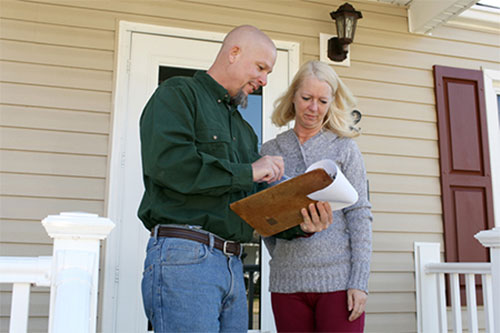If you are a Georgia Power customer, you can get up to a $250 rebate for attic insulation upgrades through Georgia Power’s Home Energy Improvement Program (HEIP). There are also other rebates available for duct sealing, smart thermostats, and other efficiency measures. Local electric membership co-ops and municipal utilities may also offer additional energy savings and incentives. You can combine these utility rebates with other state and local offers for maximum savings.

Remember you can stack incentives together for maximum savings.
Insulation and air sealing upgrades can cut your energy bills by up to 15% and usually pay for themselves in a few years.
You’ll enjoy better comfort, fewer drafts, and less stress on your HVAC system. Proper insulation and air sealing also help prevent condensation, moisture buildup, mold, and structural issues. As well as protect pipes from freezing in insulated crawl spaces and attics.
You’ll be helping the environment by using less energy which reduces carbon emissions. You’ll also help the local power grid by reducing peak heating and cooling demand.
Energy efficiency improvements increase your home’s resale value by making your home more attractive to buyers interested in lower operating costs and green features.
With generous rebates on qualifying energy upgrades, this is the best time to invest in a more energy-efficient Georgia home. Combining incentives and energy upgrades creates a rare win-win scenario for you and other homeowners. You get paid back for creating a more comfortable home, lowering your energy costs, and leaving a smaller environmental impact. Take advantage of these programs soon, because they are time-limited and won’t last forever.
At Woodman Insulation, our expert crew of insulation installers is here to guarantee your home upgrades meet all required standards. We’ll help you navigate every step of the available programs you may qualify for to ensure you receive the maximum rebate for your project. Contact us today to get started on upgrading your Atlanta area home.
Georgia Environmental Finance Authority. (n.d.). Energy programs: Home energy rebate programs. Georgia Environmental Finance Authority. https://gefa.georgia.gov/energy-programs/home-energy-rebate-programs#:~:text=Georgia%E2%80%99s%20Home%20Energy%20Rebates%20provide,income%20and%2For%20expected%20energy%20savings
Georgia Power Company. (n.d.). Residential save money and energy: Rebates and discounts. Georgia Power. https://www.georgiapower.com/residential/save-money-and-energy/rebates-and-discounts.html#:~:text=Attic%20Insulation
Georgia's Energy Rebates. (n.d.). Home efficiency rebates. Georgia's Energy Rebates. https://energyrebates.georgia.gov/home-efficiency-rebates#:~:text=Incentive%20Limit%20Max%20Incentive%20Less,4%2C000
Insulation Institute. (n.d.). Report: 89% of homes are under-insulated. North American Insulation Manufacturers Association. https://insulationinstitute.org/report-89-of-homes-are-under-insulated/#:~:text=New%20research%20sponsored%20by%20NAIMA,increasing%20energy%20costs%20for%20homeowners